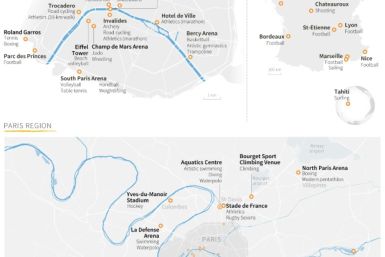Resolutions Galore: What Do Aussies Want in the New Year?
The New Year's resolutions of most Australians are predictable as they tend to make the same promises year in and year out.
A study by research firm IBISWorld identified eight usual New Year's resolution identified by respondents.
Topping the list is the promise to lose weight and become fit. Such a resolution is expected given the rise of obesity rates among Aussies to 24 per cent in 2011 from 11.1 per cent in 1995.
IBISWorld forecasts that because of the intent of Australians to reduce weight, gyms, fitness centres and personal trainers would reap the most benefit as the fitness industry grows by 2.7 per cent to reach $2.9 billion in 2012.
Other health-related New Year's resolutions of Australians are to eat better and stop smoking. Despite promises to stop smoking made yearly by Aussies, the country's tobacco retailing industry's turnover is over $10 billion annually although there has been a significant decline in smoking rate to 1.47 per cent projection for 2012 from 7.07 per cent of the population in 1980.
Another popular resolution is to travel more often, which was fulfilled by many Australians as the number of residents who went overseas over the past 10 years grew by over 100 per cent. Part of the reason behind the frequent travels of Aussies is the country's strong currency. Over 500,000 Australians make overseas trips monthly, with Southeast Asia and North America as their most popular destinations.
Another New Year's resolution that Australians have kept is to get out of debt. A proof of this is the savings rate reaching up to 14 per cent of national income which is the highest level in 25 years.
Another study by Australian bank ING DIRECT said that of two thirds of Australians who will make a New Year's resolution for 2012, more than half will focus on their finances.
The survey said 34 per cent plan to save more, 24 per cent intend to have better control over their spending and 4 per cent plan to switch banks.
Other popular resolutions among Aussies are to expand their knowledge through enrolment in technical courses or going back to school, and get into do-it-yourself and other home improvement activities.
"The holiday season is a perfect chance for many Australians to do the work around the house they have been putting off all year. Traditionally December and January are the busiest months of the year for hardware stores and nurseries," said IBISWorld General Manager for Australia Karen Dobie.
She forecast that Aussies would spend $1 billion on DIY on the first month of 2012.






